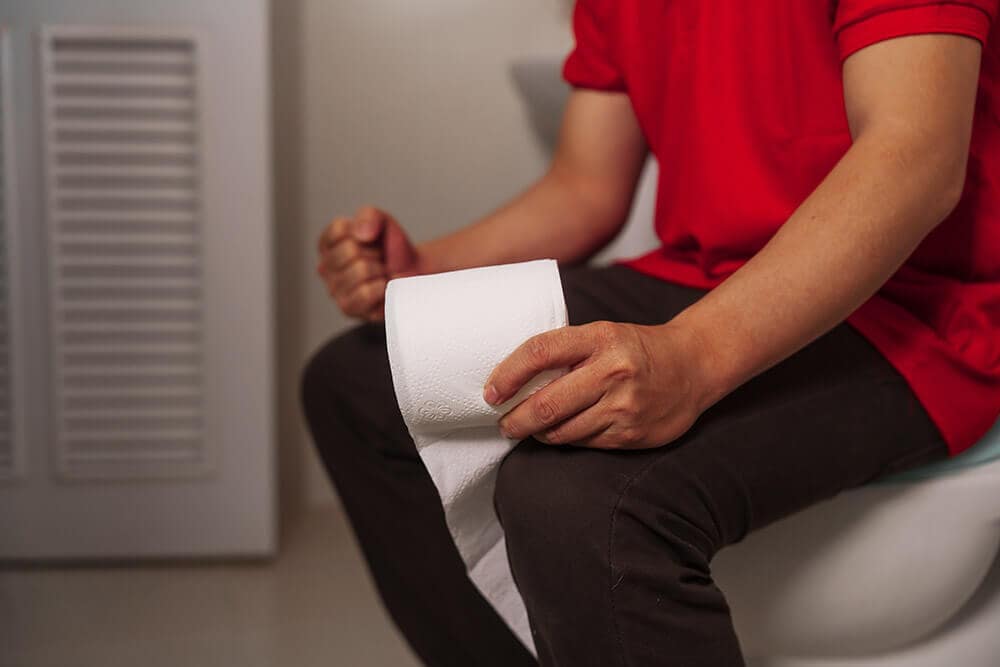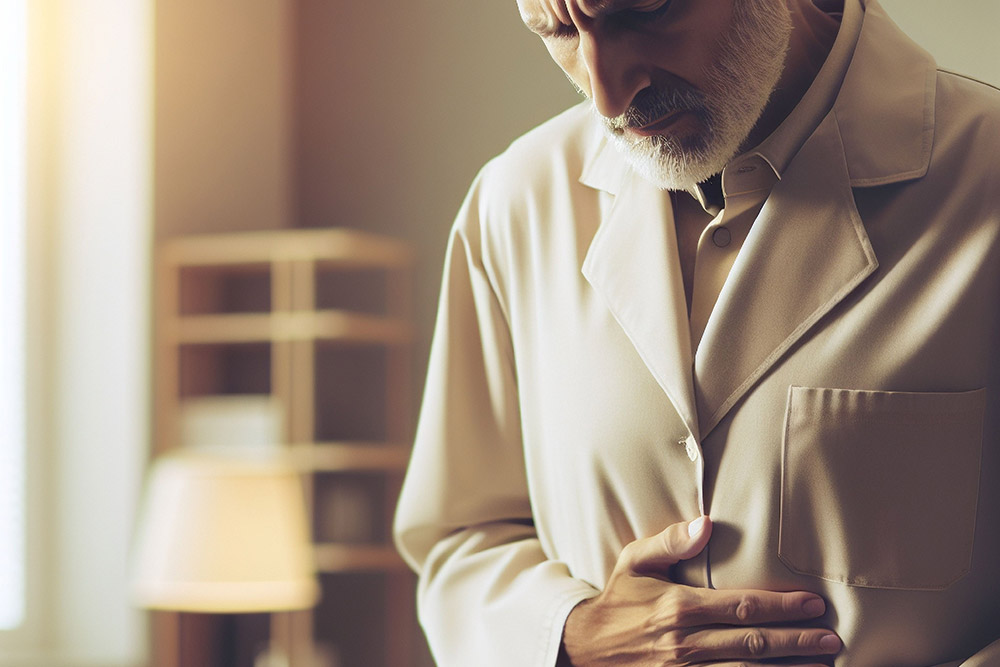What Is Lymphocytic Colitis?
Lymphocytic colitis is a form of microscopic colitis that causes swelling in the lining of the colon. Immune cells called lymphocytes accumulate in the colon wall, leading to persistent watery diarrhea. Although the colon appears normal during a standard colonoscopy, characteristic changes are seen only under the microscope.
Note: The ICD-10 code for lymphocytic colitis is K52.81.
Common Causes and Risk Factors
- Medications such as NSAIDs, SSRIs and proton-pump inhibitors (PPIs)
- Age - most cases occur after age 50
- Gender - more common in women
- Possible autoimmune link
- A prior gastrointestinal infection
- Family history (rare)
Signs and Symptoms
- Frequent, watery diarrhea
- Abdominal cramps or discomfort
- Urgent need to use the bathroom
- Weight loss or fatigue in more severe cases
- Normal-appearing colon on routine colonoscopy
How Dr. Rishi Chadha Diagnoses Lymphocytic Colitis
Step 1: Medical History
Dr. Chadha reviews your symptoms, diet, medications (including NSAIDs, SSRIs, PPIs), and any past gut infections or autoimmune conditions.
Step 2: Lab Tests
Blood and stool tests are performed to rule out infections, check for inflammation, and assess overall gut health.
Step 3: Colonoscopy with Biopsy
During a colonoscopy, Dr. Chadha inspects the colon lining (which often appears normal) and takes a small tissue sample. Under the microscope, increased lymphocytes in the colon wall confirm lymphocytic colitis.
Step 4: ICD-10 Coding
Once confirmed, the diagnosis is documented using ICD-10 code K52.81 for proper treatment planning and insurance purposes.
Frequently Asked Questions
What is lymphocytic colitis?
Lymphocytic colitis is a form of microscopic colitis where lymphocytes-immune cells-build up in the colon lining, causing chronic watery diarrhea even though the colon looks normal on scope.
Is lymphocytic colitis serious?
It's not life-threatening but can significantly affect quality of life due to frequent, urgent diarrhea and abdominal discomfort.
Is it an autoimmune disease?
It behaves like one-immune activity against the colon wall-but isn-t officially classified as an autoimmune disease.
What causes lymphocytic colitis?
Triggers include certain medications (NSAIDs, SSRIs, PPIs), past gut infections, and unknown factors; age over 50 and female gender increase risk.
How is lymphocytic colitis diagnosed?
After ruling out infections with blood and stool tests, diagnosis is confirmed by colonoscopy with biopsy, showing lymphocyte buildup (ICD-10 code K52.81).
What is the treatment for lymphocytic colitis?
Treatment includes diet/lifestyle changes, budesonide (a locally acting steroid), anti-diarrheals, mesalamine, and sometimes immune-suppressing drugs for severe cases.
How long does it take to get better?
Most patients experience symptom relief within 6-8 weeks of starting appropriate therapy.
Can lymphocytic colitis come back?
Yes, flares can recur. Long-term management and trigger avoidance can reduce the likelihood of relapse.
Will I need surgery for lymphocytic colitis?
Surgery is extremely rare and reserved as a last resort when all other medical treatments have failed.











